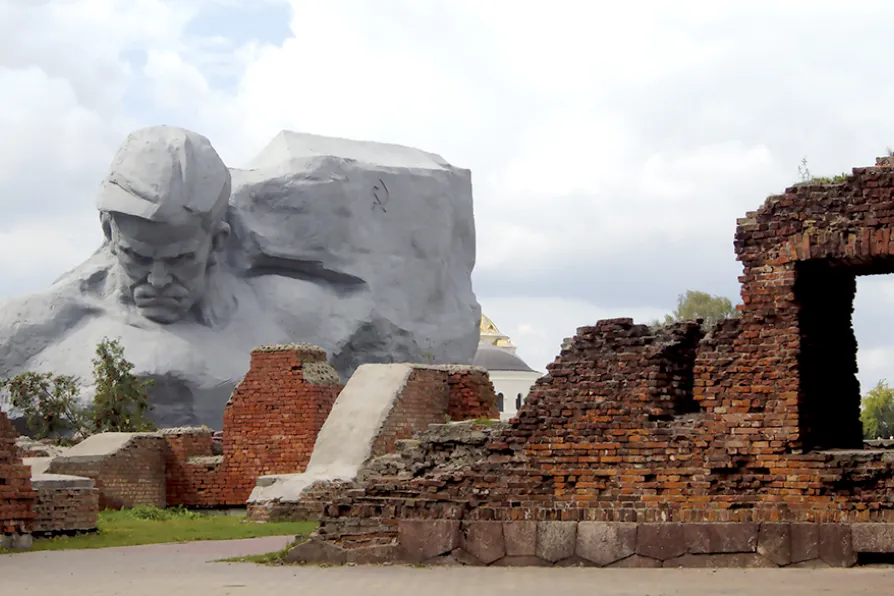RITA DI SANTO draws attention to a new film that features Ken Loach and Jeremy Corbyn, and their personal experience of media misrepresentation

 Brest Fortress Memorial
[Lena Armstrong/Creative Commons]
Brest Fortress Memorial
[Lena Armstrong/Creative Commons]
Brest Fortress Memorial, Belarus
ON SEPTEMBER 18, 1971, just over 30 years after the momentous if doomed defence of the Brest fortress by the Soviet Red Army against Nazi invaders, a memorial to its defenders was unveiled by the 19th-century star-shaped citadel that sits astride the Mukhavets River and faces the River Bug.
On the present boundary between Belarus and Poland, within the latter’s borders before WWII it served as one of its places of internment for socialist activists.
Two weeks after Nazi Germany’s treacherous attack on Poland on September 1, 1939, Joseph Stalin ordered the Red Army to advance west and secure territories up to the River Bug, including the Brest fortress. Permitted under the Ribbentrop-Molotov pact of August 1939, it was a move designed to keep German armies at arm’s length.

JOHN GREEN observes how Berlin’s transformation from socialist aspiration to imperial nostalgia mirrors Germany’s dangerous trajectory under Chancellor Merz — a BlackRock millionaire and anti-communist preparing for a new war with Russia

The obfuscation of Nazism’s capitalist roots has seen imperialism redeploy fascism again and again — from the killing fields of Guatemala to the war in Ukraine, writes PAWEL WARGAN

As Moscow celebrates the 80th anniversary of the Nazi defeat without Western allies in attendance, the EU even sanctions nations choosing to attend, revealing how completely the USSR's sacrifice of 27 million lives has been erased, argues KATE CLARK

The pivotal role of the Red Army and sacrifices of the Russian people in the defeat of Nazi Germany must never be forgotten, writes DR DYLAN MURPHY










